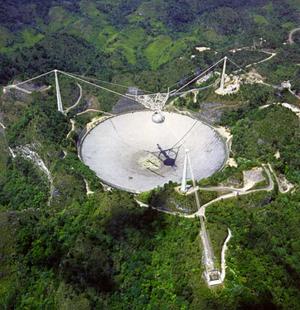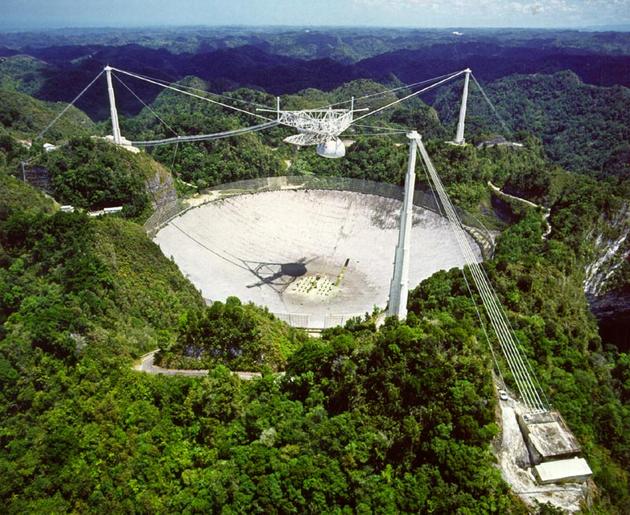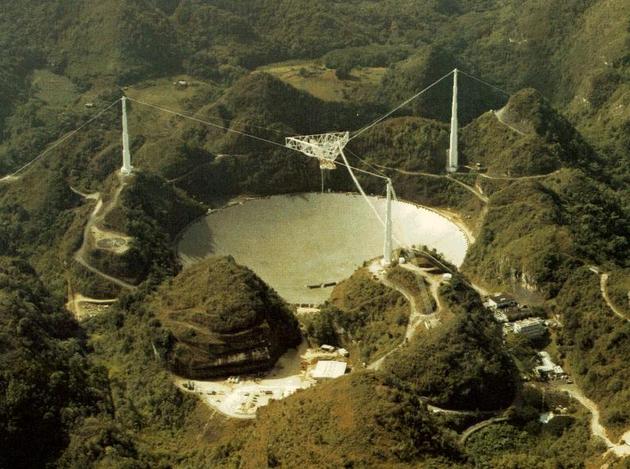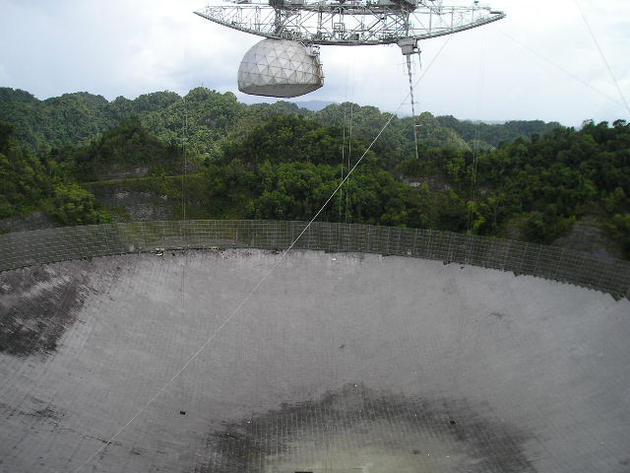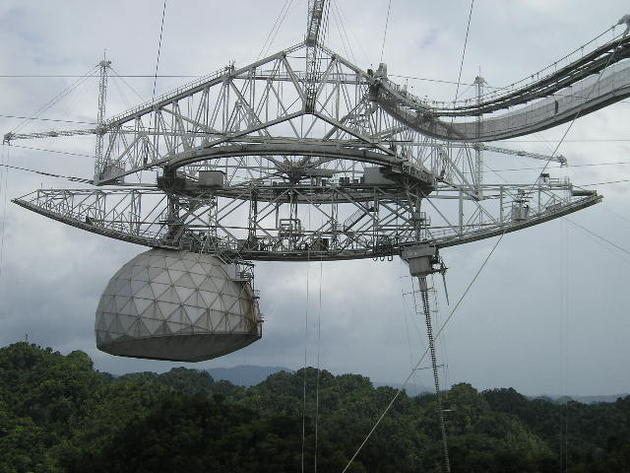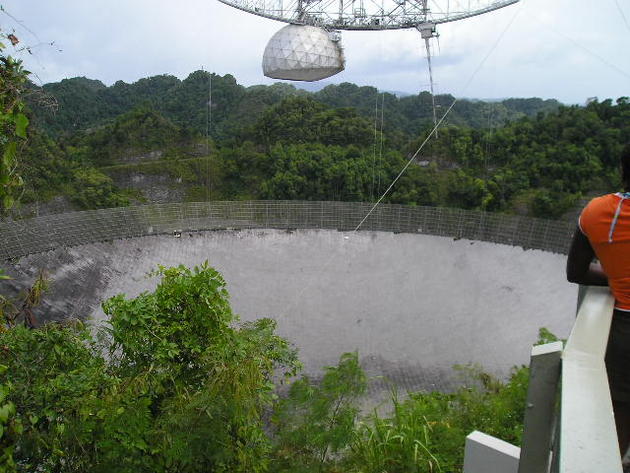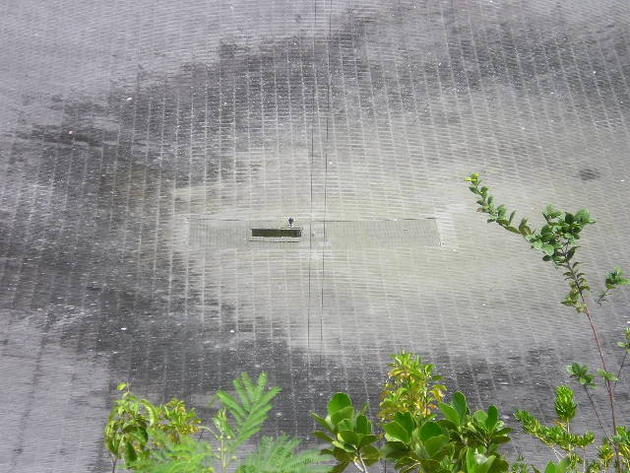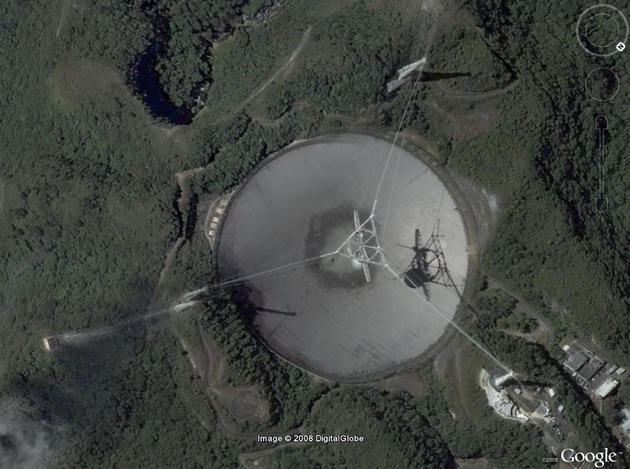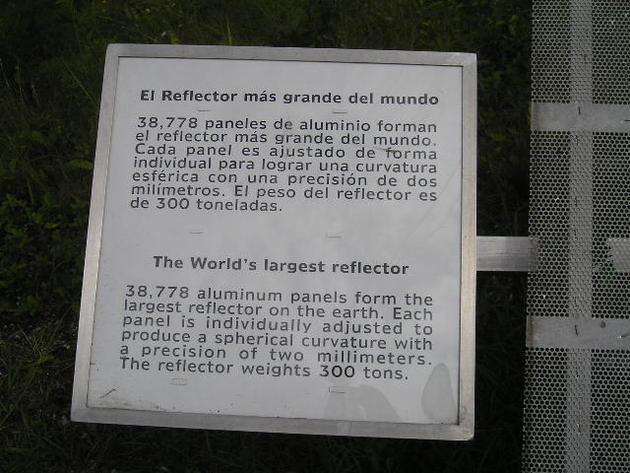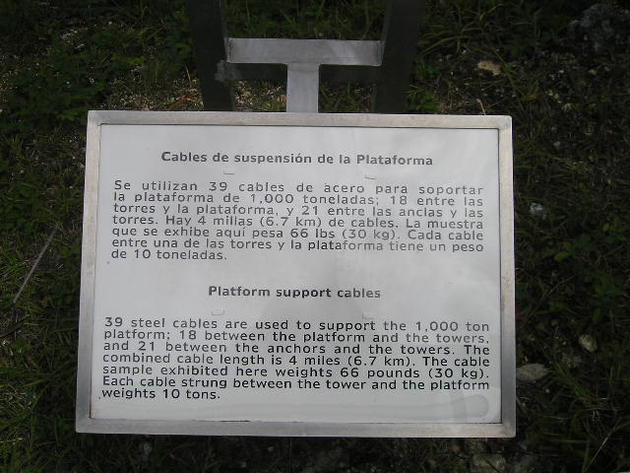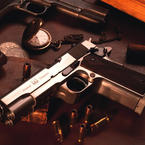Cold War Spy Weapon & Largest Satellite
Jun 20 2011
This is the largest radio telescope to be constructed on the face of the planet. It was built in 1960's and has many different roles that it served, and serves to this day. It served as a military spy weapon during the Cold War and it disproved many theories and discovered many new things in space such as the first asteroid captured on an image. Take a look at this engineering marvel.
The Arecibo telescope is enormous; the main collecting dish is 305 m (1,000 ft) in diameter, constructed inside the depression left by a karst sinkhole.
It contains the largest curved focusing dish on Earth, giving Arecibo the largest electromagnetic-wave-gathering capacity. The dish surface is made of 38,778 perforated aluminum panels, each measuring about 3 by 6 feet (1 by 2 m), supported by a mesh of steel cables.
During the cold war this satellite was able to track down exact locations of Soviet Radar Bases and Telecommunications posts. It did this by capturing the Soviet radio waves that were reflecting off the moon and determining their source. Then it could track down their exact geographical position.
On 7 April 1964, shortly after it began operations, Gordon Pettengill's team used it to determine that the rotation rate of Mercury was not 88 days, as previously thought, but only 59 days.
The telescope has three radar transmitters. Picture of it in detail:
Special footwear is required to be worn at all times when working on the dish panels themselves as they are extremely fragile when under pressure from a weight of a human.
This is how it looks like from space, quite a large satellite dish!
